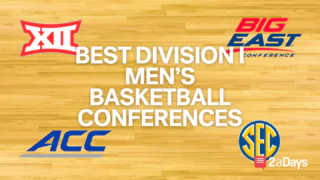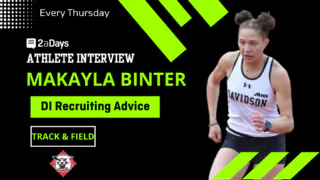It's been a busy few years for NCAA policymakers. After the NCAA was all but forced by state and federal pressure to relinquish its grip on name, image, and likeness policies, the Association has taken matters into its own hands by forming a Transformation Committee to modernize existing rules to “enhance all facets of Division I.” As a result, last year, the Committee drafted a report of proposed policy initiatives that were officially approved at the NCAA's annual convention last Thursday.
Did the Committee hit the mark? Sort of. Here are the pros and cons of the now-approved proposals to take effect during the 2023-24 academic year.
Pro: Increased Health and Safety Measures
Although the NCAA has handbooks outlining policies for health and safety and mental health best practices, these guidelines aren't enforceable. For instance, although the NCAA's handbook on Mental Health Best Practices states that universities states that a licensed practitioner “should be easily accessible to student-athletes,” which is good! But the verb “should” and the handbook's status as a best practices guide render the policy unenforceable (more on that later). However, this will change as the Committee voted on enhancing health and safety for college athletes in the following ways:
- D1 universities must provide access to medical coverage for athletic injuries up to two years after graduation
- Medical personnel with training in diagnosing and treating concussions must be present at practices of high-impact sports such as football, hockey, and soccer and on-campus for lower-risk sports.
- Institutions must provide mental health support in line with the NCAA's existing best practice guidelines
It's a good thing that health and safety will now be a “must” for college athletes.
Pro(ish): Academic Improvements
The Committee's recommendations also outlined enhancements for the academic experience of college athletes and they're promising as well. Recommendations that were approved include:
- College athletes will have access to “expanded programming” in areas including diversity, equity, and inclusion, career preparation, and others
- Allowing funding for academic needs like admissions fees, caps and gowns, and transportation to campus
- Increased academic counseling and tutoring services.
Related: Feeling Overwhelmed? 7 Tips To Help Athletes Approach a Coach About Their Mental Health
These new policies are generally good—they just lack specificity and enforcement measures. For example, the NCAA is not requiring institutions to pay for athletes' educational expenses, they're simply permitting institutions to do so without any fear of these provisions being considered illegal benefits by the NCAA. Similarly, while it's great that member schools need to increase their academic counseling and tutoring services, the new policies don't specify by how much or the credentials of academic service providers must have–something that will hopefully become clearer as the legislation advances further.
The verb “attest” as it is used in the Committee's report is also quite interesting. One such instance is where the report states that schools must “attest that they provide academic support services to current student-athletes.” Another place “attest is used is in the requirement for universities to “attest that they follow concussion management protocols.” In my reading of the text, to require universities to say that they're following policy is a softer demand than simply stating that universities must follow said policy. I'm not sure how this will pan out in the future, but it's an interesting rhetorical choice by the Committee.
Con: Are Equity and Inclusion Priorities?
Much like my beef with the phrasing of academic requirements, I'm wary of the Committee's equity and inclusion policies due to the verbiage used. Specifically, the use of the verb “should” isn't really a requirement—it's more of a recommendation. For instance, when discussing championship revenue, the report says that “consideration should be given to” gender equity in revenue-sharing initiatives, which doesn't mean a whole lot. The NCAA has contributed to underfunding, and therefore, hamstringing, the revenue-producing potential of women's sports in the past, so to say women “should be considered” in these initiatives isn't great. The report also fails to mention enforcement of Title IX at all, which is troubling, considering that roughly 80-90% of universities in the U.S. are not Title IX compliant.
Related: Looking Back on 2022: Title IX Turned 50 But Progress is Still Needed
In terms of inclusion, the NCAA appears to be doing some damage control—the new report now requires athletic departments to “employ at least one full-time staff member, with appropriate training, whose primary focus is on diversity, equity, inclusion and belonging.” Diversity makes sports great—so why is there such a low threshold for diversity-and-inclusion-focused employees in the updated policy? The phrase “appropriate training” is also vague and not expanded on in the report, which leads me to question the seriousness of the intent behind this addition.
Con: Policy Doesn't Tell the Whole Story
Although many of the NCAA's now-approved recommendations are much-needed, the convention itself was quite telling of the NCAA's long-term goals and values. Reporters who attended noted that according to the NCAA's Board of Governors Chair Linda Livingston, the NCAA is currently asking Congress for three main things:
- To prohibit college athletes from being employees
Considering the Committee's emphasis on health and safety in its new report, the NCAA's stubbornness on employee rights is, while unsurprising, illogical. Employee benefits for college athletes could include disability coverage, discrimination protections, and the legal requirement workplace safety, all of which would enhance the health and safety of college athletes.
Related: Are College Athletes Employees?
- A safe harbor from antitrust scrutiny
This is a slight improvement from the outright exemption the NCAA has wanted for so long, but still problematic from a NIL standpoint and for revenue-generating athletes. Essentially, protection from antitrust lawsuits would enable the NCAA to further restrict NIL rules and likely prevent athletes from earning a piece of revenue that they earn for their universities in the future. An antitrust exemption that would actually benefit college athletes would be caps on coach salaries and university spending in favor of athletic scholarship funding, but the NCAA has gone in the exact opposite direction in the past.
- A federal NIL law that would override existing state laws
This could be a very bad thing for athletes if the NCAA wants to regulate NIL like they have done in the past. It's also not particularly likely to happen, but with the aisle-reaching capabilities of the NCAA's new president, it's also not impossible.
So, in my opinion, the approval of the Committee's newest policies is a bit of a mixed bag—while several of the NCAA's latest initiatives are moving in a good direction, when it comes to the rights of college athletes, the NCAA is stuck in the past.
Have an idea for a story or a question you need answered? Want to set up an interview with us? Email us at [email protected]
* Originally published on January 16, 2023, by Katie Lever, Ph. D







